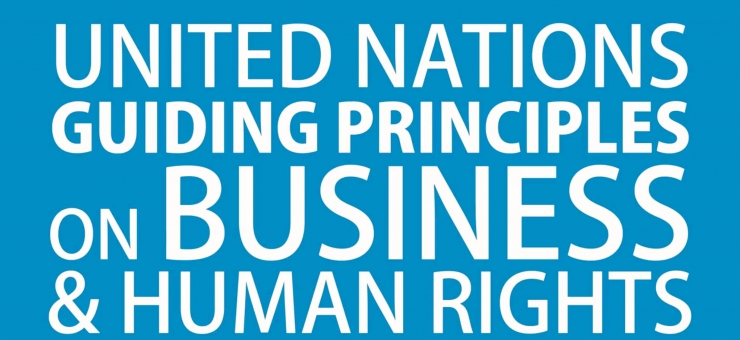UNI Deputy GS calls for business and government to deliver on human rights

At the closing of 2017 UN Forum on Business and Human Rights, Christy Hoffman issued a call to action in order to make progress in the remedy pillar of the UN Guiding Principles on Business and Human Rights.
Watch the closing session video here
While welcoming the progress that has been made on human rights in business, notably strengthening the OECD Guidelines enforcement and the new ILO Declaration on Multinationals, Hoffman gave a reality check to business and government leaders.
“Eleven percent, that’s 160 million, of the world’s children are at work, and progress has stalled for those between the ages of 5 and 11. There are more people in slavery than ever before. And the respect for the fundamental, enabling right of freedom of association has actually declined over the past 5 years,” she said.
Hoffman concluded that voluntary steps were not enough to ensure business incorporated human rights into their practices and that a legal framework which embeds the Guiding Principles is essential in order to deliver remedies to human rights victims. She called upon governments to take the following steps:
- pass legislation to mandate due diligence and supply-chain transparency;
- take legal and administrative steps to allow for access to effective remedy within your borders, including for company operations abroad;
- Support an ILO supply chain convention to guarantee labour rights;
- Support a binding UN Treaty on transnational corporations
“These steps are both aspirational and achievable, essential elements of progress," Hoffman said.
The UNI Deputy GS said businesses also had a responsibility to start changing this scenario by recognizing unions, and allowing freedom of association and collective bargaining. In an earlier session on benchmarking, Hoffman had pointed out how far businesses were below the bar on these basic tenets of worker human rights.
Hoffman also urged business to sign up to global agreements with global unions, pointing out that over 100 multinationals had already taken this step to help safeguard the human rights of their staff. The UNI GS also drew attention to the success of the Bangladesh Accord which has been a game-changer in the Bangladesh garment supply chain, a point amplified by UNI’s Head of ICTS, Alke Boessiger, in a session on operationalizing corporate respect for human rights earlier in the week. Hoffman said that the effectiveness of the Accord was built upon it being a legally enforceable agreement.
She called on the high-level business and government leaders gathered at the UN this week to make it happen and bring about the changes required.

